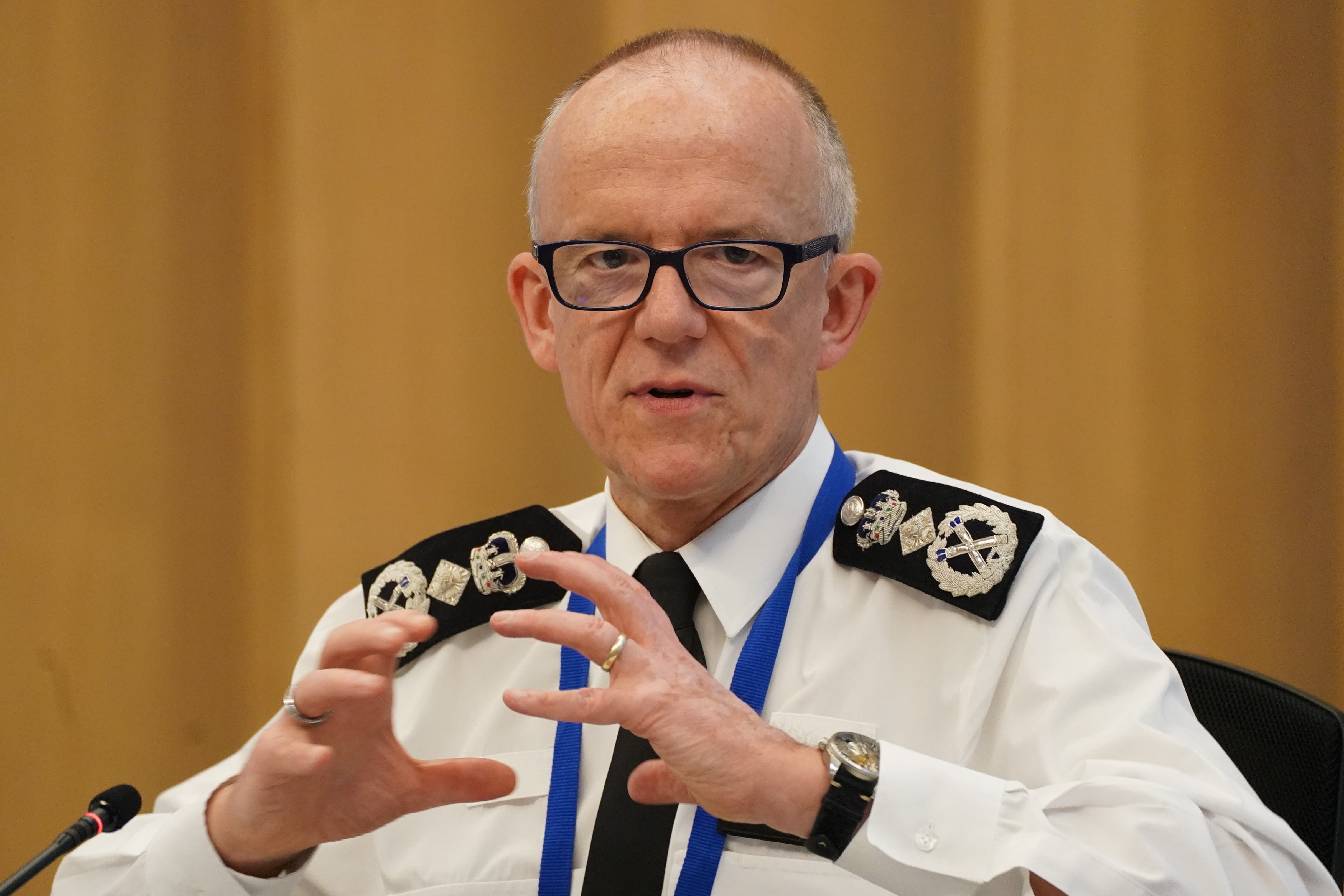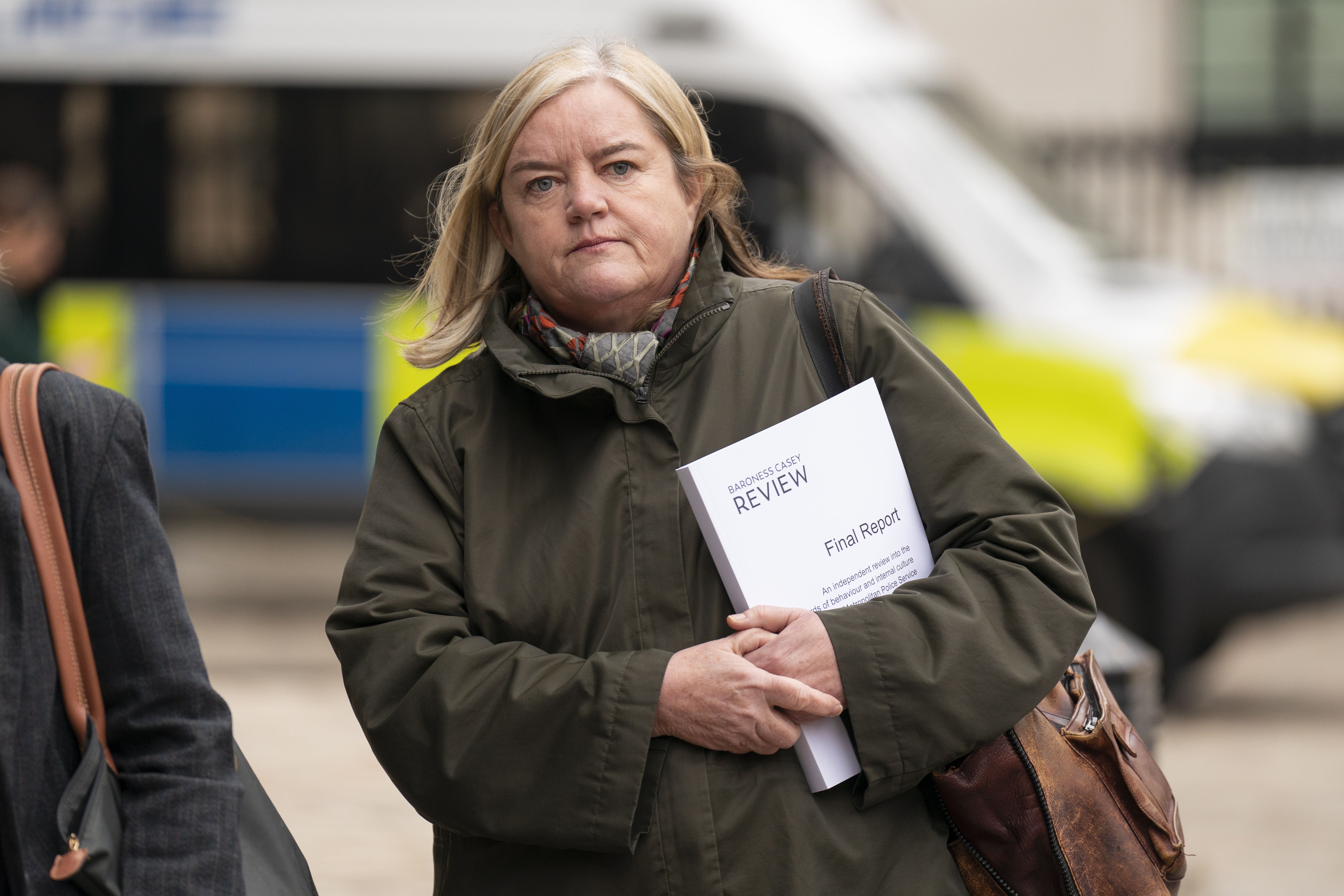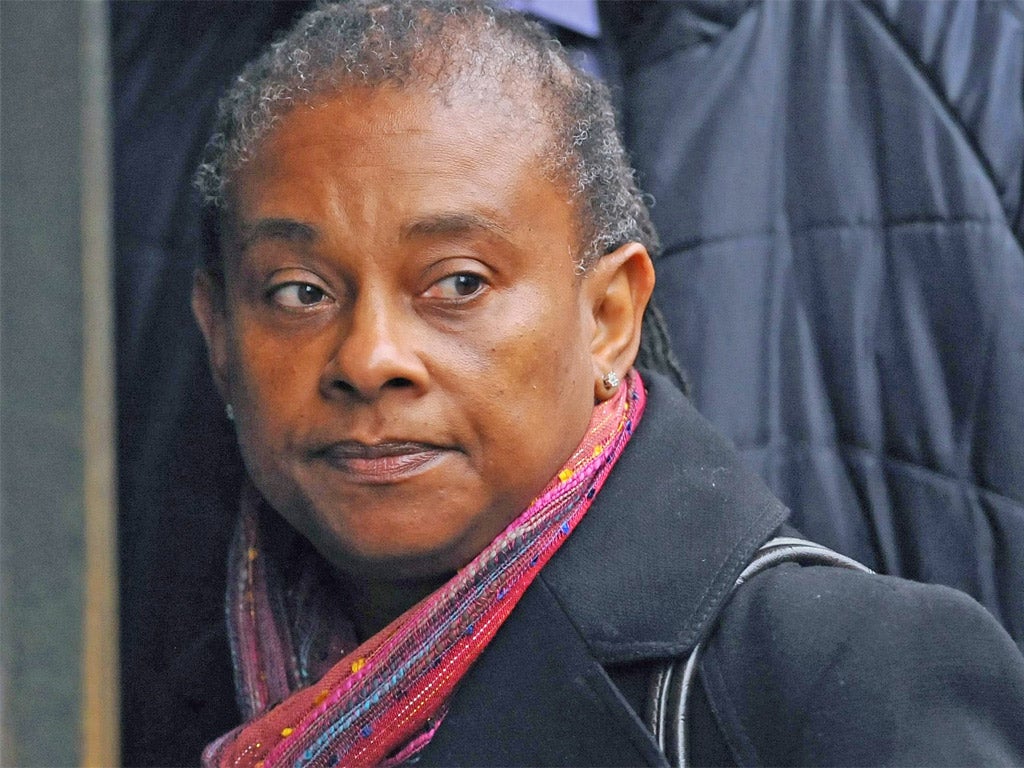‘Several hundred’ Met Police officers should be sacked, says author of damning report
If the force does not reform, it could face being broken up in future, Baroness Casey says

Several hundred Metropolitan Police officers could be sacked as a result of a landmark report revealing a homophobic, racist and sexist culture within the force, its author says.
Baroness Casey told the London Assembly Police and Crime committee that a staff cull could happen if the force’s leadership followed the report’s recommendation to crack down on rogue officers and take a tougher stance in misconduct cases.
Her scathing report, released on Tuesday, found the Met Police had failed to protect the public from officers who abuse women and said organisational changes had put women and children at greater risk.

The review found female officers and staff routinely experienced sexism, uncovered racist officers and staff and said “deep-seated homophobia” existed in the force.
When questioned by a member of the committee on how many officers could be removed as a result of the report’s findings, Baroness Casey initially said it was concerning that the full answer was not immediately known, before following up with her estimation.
“Sir Mark [Rowley] will have a greater sense for himself but I know we're not talking hundreds but several hundreds would be my estimation and I think Sir Mark will say the same thing later this morning,” Baroness Casey said.
She added that the appointment of assistant commissioner Barbara Gray would help the Met Police handle its cultural issues but insisted the right people were needed around her to implement changes effectively.
Baroness Casey told the committee that the release of the report was an opportunity for the Met to say its issues were “institutional” – a label Met Commissioner Sir Mark Rowley has refused to use – but urged patience for the force to consider the findings.
“I sort of wish, in a way, that we didn’t have to talk about it today, that we could give the new commissioner the time and the space to actually allow himself and his organisation to hear the findings of this review, to consider particularly the ones that have been with the Met for a long time and take a moment, I suppose, or a month or two months, to actually then consider it, because it just rings hollow to say, ‘I don’t like the word and it’s not a word I would not use’,” Baroness Casey said.
“And I know Mark Rowley, he is a man of utter decency and integrity. So we need to give him time and we need to give him the respect that he needs and he warrants, as does his deputy commissioner.”

Sir Mark was not asked how many officers could be sacked from the force if the report recommendations were implemented but insisted there was “momentum” to overhaul the force.
Speaking to politicians at City Hall on Wednesday, he said the review “calls out discrimination in the organisation”, not just individuals, but “also the systemic failings within it, the management failings and the cultural failings”, adding: “I welcome the findings and hope it acts as a catalyst.”
Sir Mark told the London Assembly police and crime committee that he and senior leaders have been through a “bit of a rollercoaster of emotions” as they digested the findings, including anger, frustration, embarrassment and being upset but also more “positive emotions” because it “redoubles your intent and your resolve”.
He said they had to “absorb” the “weight of Louise's thinking” and build them into his plans for reform.
At Prime Minister’s Questions on Wednesday, Rishi Sunak did not say if he accepted the findings of the Casey review but conceded that “lives have been ruined by what has happened”.
“It is imperative that the Met works hard to regain the trust of the people it is privileged to serve,” Mr Sunak said.
Bereaved families let down by the Met Police have made powerful calls for change after the savagely critical review.
Baroness Doreen Lawrence, whose son Stephen was murdered by racists in 1993, said the force was “rotten to the core”.

And the families of the victims of serial killer Stephen Port, who was left free to murder three men after police failures in investigating the death of his first victim, called for a public inquiry to understand “how and why this force is failing people so badly”.
The lawyer who represents the family of Chris Kaba, who was shot dead by police, said the Casey review reflects the experiences of many relatives, who “often have to fight tooth and nail” to get information.
The report called for a “complete overhaul” of the Met and a “new approach to restore public trust and confidence”.
The review made 16 recommendations and said the changes need to be made by the force, the Mayor's Office for Policing and Crime and the Home Office to “create a radically improved new London Metropolitan Police Service”.
The reforms are of a “significant scale” and “on par” with the “transformation of the Royal Ulster Constabulary to the Police Service of Northern Ireland” at the end of the last century.
If the force does not reform, it could face being broken up in future, Baroness Casey said.
Sir Mark Rowley, said he accepts the “diagnosis” of prejudice in the force, but would not use the term institutional because he views it as politicised and ambiguous.






Join our commenting forum
Join thought-provoking conversations, follow other Independent readers and see their replies
Comments